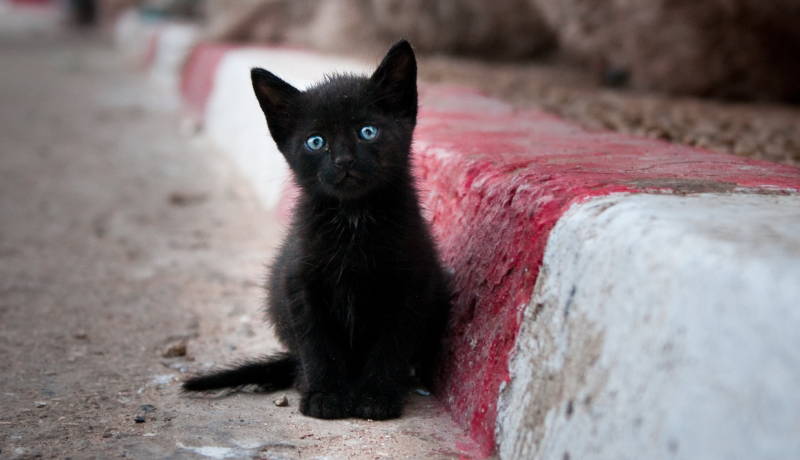Above image by GuideYourPet.
It's tough to be a black cat. The superstition that surrounds them might seem trivial, but studies show they're actually adopted less frequently than kitties who sport other colors on their coats. Around Halloween, especially, if cats could groan, you'd be hearing a big collective one from our darker-haired feline friends.
But why, exactly, do we consider black cats bad luck in the first place? In a new video from the YouTube series Today I Learned, host Simon Whistler explains the trouble began, essentially, with -- surprise! -- fear of women.
Black cats were considered near-royalty prior to the Middle Ages, when hysteria around "witches" began to snowball in Europe, explains Whistler. Alley cats were often fed and cared for by, yes, lonely older women, leading people to associate felines with these clearly sinister female humans who had the gall to age while continuing to be single.
But the black cat association, in particular, can apparently be traced to a story that spread like wildfire in the 1560s in England. When a black cat crossed the path of a father and son, the pair decided to throw rocks at it (natch), injuring the poor thing until it took shelter in a woman's house. The next day they allegedly saw the woman limping, and came to a very scientific conclusion: Witches turn into black cats at night. Then that whole Salem witch trial thing happened, and, well, we all know how that one turned out.


